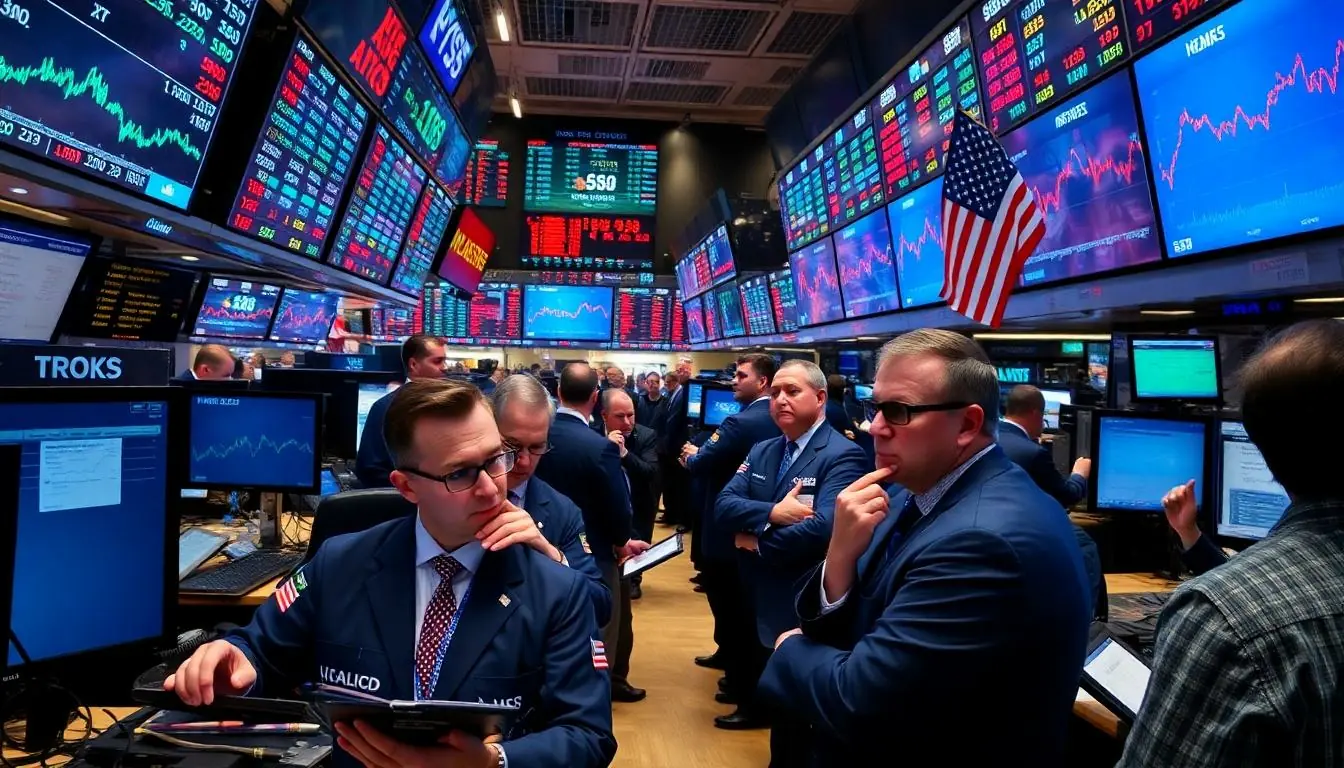In a world where everyone seems to have an opinion, the way people think can be as diverse as their favorite pizza toppings. Mindsets shape our perceptions, decisions, and even our Netflix choices. From the growth-oriented optimist to the skeptical realist, understanding these different mindsets can unlock the secrets to better communication and personal growth.
Imagine if you could decode the mental framework of those around you. Wouldn’t that make conversations a lot more interesting? Whether you’re navigating a tricky workplace dynamic or trying to convince your friend to join that new workout class, knowing the mindset of the person you’re dealing with can be a game-changer. So, let’s dive into the fascinating world of mindsets and discover how they can transform everyday interactions into something truly enlightening.
Table of Contents
ToggleUnderstanding Different Mindsets
Different mindsets shape how individuals approach challenges and experiences. A growth mindset encourages people to view challenges as opportunities for learning. Alternatively, a fixed mindset causes individuals to see challenges as threats to their abilities. Recognizing these mindsets fosters better understanding among peers.
People with a growth mindset embrace feedback. They actively seek input to improve their skills. In contrast, those with a fixed mindset often take criticism personally, feeling it questions their intelligence or capability. This difference affects not only personal development but also teamwork.
Additionally, the optimistic mindset reveals positivity in adversity. Such individuals focus on potential solutions rather than obstacles. Conversely, a pessimistic mindset can lead to a tendency to dwell on problems. This distinction can hinder progress in both personal and professional settings.
Cultural influences also play a significant role in shaping mindsets. Some cultures promote collectivism, leading to a community-oriented mindset. Others encourage individualism, fostering independence and self-reliance. Recognizing cultural differences aids in creating inclusive environments.
Lastly, emotional intelligence impacts how one understands and responds to different mindsets. High emotional intelligence enables individuals to navigate various perspectives with empathy and insight. Lower emotional intelligence can result in misunderstandings and conflicts. Developing this awareness enhances communication and improves relationships.
Understanding these various mindsets enriches interactions and cultivates personal growth. Walking through life with an awareness of mental frameworks allows for deeper connections and improved communication skills.
Fixed Mindset

A fixed mindset limits individuals’ potential by creating a belief that abilities and intelligence are static. This mindset manifests in various ways, impacting daily interactions and personal development.
Characteristics of Fixed Mindset
Individuals demonstrating a fixed mindset often fear failure. They view challenges as insurmountable obstacles instead of opportunities for growth. Feedback is typically taken as criticism, not constructive guidance. Avoidance of effort frequently surfaces, as they believe hard work won’t change their capabilities. Lastly, comparisons to others often lead to feelings of inadequacy, reinforcing their belief in their limitations.
Impact on Personal Growth
Growth remains stifled for those entrenched in a fixed mindset. Learning opportunities may be overlooked due to an aversion to discomfort. Resilience often falters, as setbacks are perceived as proof of inability, not as steps toward improvement. Relationships might suffer, as collaboration and open communication take a backseat to self-protection. Ultimately, personal and professional development stalls, keeping individuals from realizing their true potential.
Growth Mindset
A growth mindset fosters a belief in the potential for improvement and development. Individuals with this mindset view challenges as opportunities, embracing the idea that effort leads to mastery.
Characteristics of Growth Mindset
Openness to learning defines those with a growth mindset. They actively seek feedback to improve their skills. Resilience is another key trait; setbacks aren’t viewed as failures but as stepping stones toward success. Curiosity drives their quest for knowledge. Adaptability allows them to pivot when facing new situations or obstacles. Lastly, individuals celebrate the achievements of others, understanding that these successes contribute to a collective learning experience.
Benefits of Embracing a Growth Mindset
Embracing a growth mindset enhances personal development. Individuals experience increased motivation, as challenges become a source of inspiration rather than fear. Problem-solving skills improve through persistent effort. Team collaboration flourishes, with open communication promoting a culture of support and innovation. Resilience strengthens, enabling individuals to bounce back from setbacks. Overall, a growth mindset leads to greater satisfaction in both personal and professional realms, fostering a more fulfilling life.
Other Types of Mindsets
Various mindsets influence personal and professional experiences. The abundance and scarcity mindsets stand out, providing distinct perspectives.
Abundance vs. Scarcity Mindset
An abundance mindset embraces the idea that resources and opportunities are plentiful. Individuals cultivating this mindset tend to share their successes and celebrate others’ achievements. They view challenges as chances for collaboration. In contrast, a scarcity mindset focuses on limitations. People with a scarcity mindset often feel threatened by others’ successes and may hoard resources. This perspective leads to competition rather than cooperation. Recognizing these mindsets can enhance teamwork and communication. By fostering an abundance mindset, individuals can create positive environments that stimulate growth and innovation.
Practical vs. Theoretical Mindset
A practical mindset emphasizes real-world applications and hands-on experiences. Individuals with this mindset prioritize actionable solutions and often seek concrete results. They value experimentation and learning through trial and error. On the other hand, a theoretical mindset favors abstract concepts and principles. People with this mindset enjoy exploring ideas and understanding underlying theories. This focus on knowledge can lead to innovative thinking; however, without practical implementation, ideas may remain untested. Balancing practical and theoretical mindsets can enrich problem-solving approaches, combining knowledge with action for greater effectiveness.
Embracing the diversity of mindsets can significantly enhance personal and professional interactions. By recognizing and understanding different thought processes individuals can foster more meaningful connections and improve communication.
Cultivating a growth mindset not only encourages resilience and adaptability but also promotes a collaborative environment. This shift in perspective can lead to greater satisfaction and success in various aspects of life.
Ultimately the journey toward understanding mindsets is an ongoing process that enriches personal development and nurtures a more inclusive society.







